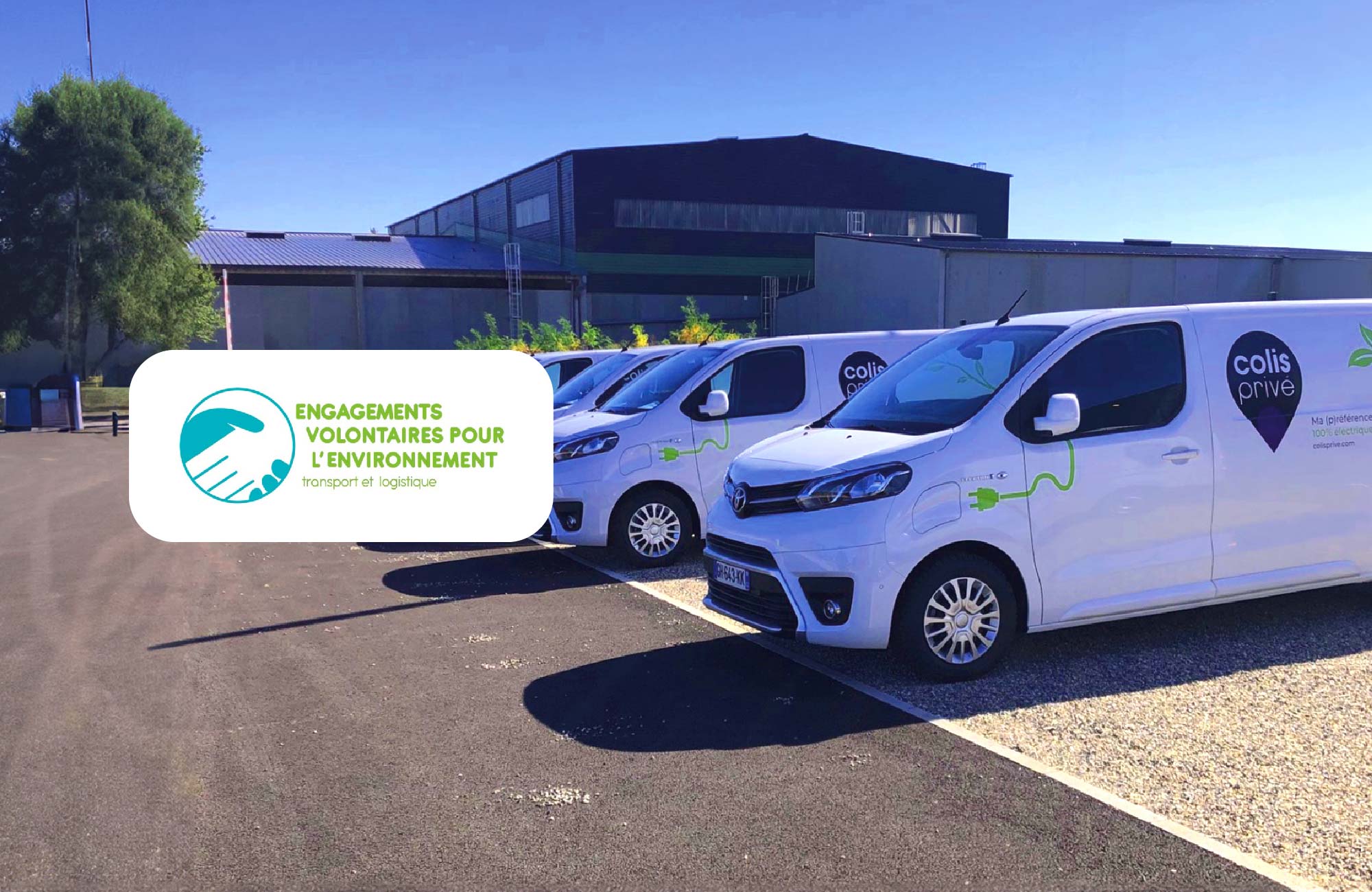With over 30 years of experience, Colis Privé has become France’s leading private postal operator and a specialist in home and pick-up point parcel deliveries.
In France, the company’s logistics network includes 4 hubs, 25 national agencies, and 26 local agencies. This ensures optimal territorial coverage, reducing the distance to consumers and shortening delivery times.
In response to climate change and the need to reduce its carbon footprint, Colis Privé committed in 2021 to the EVcom initiative under the EVE program, aiming to cut its greenhouse gas emissions by 5%—equivalent to 678 tonnes of CO₂—by the end of 2024
Benefits for the company
An economic benefit: Logistics optimization, a key lever for improving the environmental performance of transport, generates significant cost savings.
An environmental benefit: By joining the EVcom initiative, Colis Privé contributes to reducing greenhouse gas emissions from road freight.
A managerial benefit: Participation in EVcom helps unite teams around a strategic project and leverage expert support to validate the action plan.
A commercial benefit: Commitment to EVcom earns Colis Privé recognition from its clients and serves as a competitive advantage in tenders.
Today, the company reports an extremely positive outcome after three years of engagement, achieving a 15% reduction in GHG emissions—10 points above the initial target. This represents nearly 3,288 tonnes of CO₂ avoided in total.
“Our commitment to the EVcom initiative has enabled us to showcase our efforts to decarbonize parcel transport, from freight to the last mile. After three years, the results go beyond the initial target, with 15% fewer emissions compared to 2020,” says Camille Hudelot, CSR Project Manager.
Its action plan
Axis 1: Client Collaboration
One of the qualitative objectives was to raise awareness among shipping clients about their greenhouse gas emissions. To achieve this, Colis Privé implemented a CO₂ dashboard for its shipping clients, based on ISO 14083 standards, contributing to climate neutrality. The goal was to increase the frequency of CO₂ Scorecard communication.
Axis 2: Transport Procurement
Committed carriers: The aim was to prioritize road carriers engaged in the “Objectif CO₂” program (label and/or charter). The target was to reach 45% of chartered carriers and 30% of labeled carriers across both upstream and middle-mile segments.
Axis 3: Resources
Decarbonizing the last mile by increasing the share of low-carbon vehicles: The objective was to convert subcontractor fleets to electric vehicles, e-bikes, and gas-powered vehicles.
Reducing CO₂ emissions in freight and middle-mile segments by using alternative fuels (XTL, B100, CNG) for 5% of carriers.




